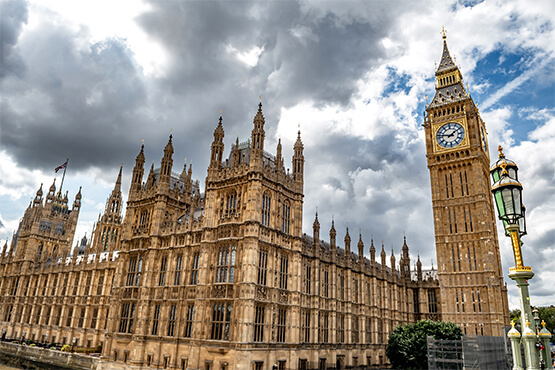Policy Position
Devolution is the main focus of the White Paper as it envisages universal coverage in England of ‘Strategic Authorities’ which may be either Combined Authorities or Combined County Authorities (and includes the Greater London Authority). In time, it is envisaged that all strategic authorities will be Mayoral Strategic Authorities (“MSA’s”). However, ‘Foundation Strategic Authorities’ (non-mayoral) can form part of the coverage as a steppingstone.
Established Mayoral Strategic Authorities will get the most powers and integrated settlements first – the integrated settlements are intended to remove ring fencing of funding and include additional funding and will consist of a single, mutually agreed outcomes framework, monitored over a Spending Review period. The provision of integrated settlements will start with Greater Manchester, Liverpool City Region, North-East, South Yorkshire, West Midlands and West Yorkshire. Other MSAs can become eligible (and apply) to be Established MSAs subject to meeting a series of criteria, including:
- need to have been in existence for 18 months,
- have a published Local Assurance Framework,
- not subject to a Best Value Notice etc,
- no material accounting concerns, and,
- track record of managing major programmes.
Combined with the reorganisation of local government described above, the White Paper envisages a consistent structure across England comprising Strategic Authorities and Principal Authorities akin to the structure in existence in London and Greater Manchester.
The White Paper is clear that legislation will be brought forward to enable Central Government to direct the bringing forward of devolution proposals where local leaders have ‘not been able’ to make progress. This will also remove the ability for single local authority devolution to have a Mayor or for Mayors to be called anything except Mayors.
Legislation will also be brought forward which sets out a framework which details which powers go with each type of authority. This will comprise a consistent floor of powers which can still be added to through the establishment regulations for any Strategic Authority.
Governance arrangements are also intended to be standardised in relation to budget setting and transport levies. For Mayoral Strategic Authorities, voting arrangements will be moved to a simple majority voting approach, with existing arrangements (which include vetoes) being overridden by the new provisions.
In relation to process, the Strategic Authorities will continue to be established using secondary legislation but taking account of the new legislative framework. New requests for devolution will be assessed against geography and governance criteria in the White Paper.
In terms of the geography of Strategic Authority areas, anticipated areas should have 1.5 million plus in terms of population, be functional economic areas, have contiguous boundaries with constituent councils, should not create devolution islands, should have the ability to deliver, be aligned with other public sector boundaries as far as possible, and have an identity.
Outside of local government, devolution will be advanced by national agencies like Homes England, Great British Railways, National Highways, Great British Energy, National Energy System Operator, and the Arts Council being asked to reconfigure for regional working.
Central Government is keen to progress the devolution agenda as quickly as possible, and on 5 February 2025, announced details of the Devolution Priority Areas which are: Cheshire and Warrington, Cumbria, Hampshire and the Solent, Greater Essex, Norfolk and Suffolk and, Sussex and Brighton. All except Cheshire and Warrington and Cumbria, which will be Combined Authorities and will be Combined County Authorities. Following local government reorganisation in the areas which will become Combined County Authorities, these will transition to become Combined Authorities. The priority areas will have Mayoral elections in May 2026, meaning that the new authorities will be created early in 2026. The Government has already put out consultations on the new authorities which run until 13 April 2025, and it is expected that establishment Regulations will be laid later in the spring.
We anticipate a further call for new strategic authorities to be proposed for election in May 2027 in the autumn.
Legislative framework
Whilst it is clear from the White Paper that significant legislative change is anticipated, strategic authorities can be established under the existing legislative framework. The precise provisions in relation to such establishment are dependant on whether it is a Combined Authority or Combined County Authority that is under consideration.
Combined Authorities may be established under the Local Democracy, Economy and Construction Act 2009 (‘2009 Act’), whilst for the establishment of Combined County Authorities, the relevant legislation is the Levelling up and Regeneration Act 2023 (‘2023 Act’). The establishment is by order (for CAs) or regulations (for CCAs) of the SoS.
A key difference between a CA and CCA is the nature of the areas that are combined. CAs can be established for an area consisting of the whole of two or more local government areas (being district or county council areas), whilst CCAs can be established for areas consisting of the whole of one two-tier county council area and at least one of another county council area or unitary area. The White Paper makes clear that CCAs will be the preferred model in two-tier areas and that CAs will not be used in these areas, but that CCAs will cease to exist once all two-tier areas have become unitarised. Both a CA or CCA can be mayoral or non-mayoral.
The process for the establishment of either a CA or CCA is similar. In either case, a proposal may be produced, consulted upon and submitted to the SoS (s109A 2009 Act, s45 2023 Act). Whilst all constituent councils do not need to be involved in the production of the proposal, they must all consent to its submission to the SoS (s109A(6) 2009 Act, s45(6) 2023 Act) and any establishment Order or Regulations must be consented to by all constituent councils (s110(1)(d) 2009 Act, s46(1)(d) 2023 Act). For CCAs constituent councils do not include the district councils in the area in question and, instead will only comprise the upper tier councils in the area.
When a proposal is submitted, the SoS may make an order (CA) or regulations (CCA) establishing the new CA or CCA provided that:
the Secretary of State considers that to do so is likely to improve the economic, social and environmental well-being of some or all the people who live or work in the area;
(aa) the Secretary of State considers that to do so is appropriate having regard to the need:
(i) to secure effective and convenient local government; and
(ii) to reflect the identities and interests of local communities,
(ab) the Secretary of State considers that its establishment will achieve the purposes [specified to be achieved under the proposal];
(b) the constituent councils’ consent; and
(c) the SoS considers no further consultation is necessary (s110(1) 2009 Act), s46(1) 2023 Act.
This is the way that CCA’s have been created to date, with all having been created pursuant to a proposal from Councils.
However, it is clear from the legislation that the SoS can create CA’s/CCA’s without needing to receive a proposal. In such a case the SoS may make an order or regulations establishing the new CA or CCA if:
(a) the Secretary of State considers that to do so is likely to improve the economic, social and environmental well-being of some or all of the people who live or work in the area;
(aa) the Secretary of State considers that to do so is appropriate having regard to the need:
(i) to secure effective and convenient local government; and
(ii) to reflect the identities and interests of local communities;
(b) the constituent councils’ consent; and
(c) the SoS has carried out and considered the outcomes of a public consultation (s110(1) 2009 Act), s46(1) 2023 Act).
It is now clear that the latter approach is being used in the priority programme areas to enable new CAs and CCAs to be created in time for Mayoral elections in May 2026. As set out above, the SoS has launched a consultation for each of those areas in the devolution priority programme.
Following the conclusion of the consultation, steps will be taken to proceed to draft the regulations creating the CA/CCA and negotiating finance packages with the areas in question.
An Order or Regulations prescribes the powers and functions to be exercisable by the CA or CCA alongside other governance matters including voting and the constitution. This will be a key area for legislative change, with a move to a more fixed framework of powers proposed in the White Paper. It seems that the Government is anticipating that the English Devolution Bill may have been passed by the time those areas in the priority programme are up and running but, has indicated that if that is not the case, regulations setting out powers will be created (and we envisage that those powers would in any event reflect what will be in the new framework of powers on a policy basis).
You may be interested in...
Opinion
Welsh Government's £36m development loan scheme: A vital step towards meeting 20,000 home target
Legal Update
The first Article 4 Direction in Wales successfully challenged in the High Court
Published Article
Devolution revolution?
Legal Update
The Homelessness and Social Housing Allocation (Wales) Bill: Can it really end homelessness in Wales?
Legal Update
Independent Water Commission report: Understanding key recommendations
Legal Update
A new planning bill for Wales: What will this mean?
Legal Update
Consultation on proposed changes to Estyn inspection regime in Wales
Press Release
Browne Jacobson appointed to Adra legal framework as housing association launches 2030 vision
Press Release
Browne Jacobson reappointed to Welsh Government Commercial Division panel
Legal Update - English devolution
Practical guide to the English Devolution Whitepaper
Press Release - English devolution
Comment on English devolution white paper
Press Release
King’s Speech 2024: Reaction from Browne Jacobson lawyers
Legal Update
The Air Quality and Soundscapes (Wales) Act 2024: How might the Act affect local authorities in Wales?
Press Release
Browne Jacobson supports establishment of East Midlands Combined County Authority
Press Release
At the forefront of society’s biggest issues - a reflection of our public sector work throughout 2023
Press Release - Firm news
Browne Jacobson bolsters presence in Wales with three new appointments
On-Demand
Practical Public Law Practice in Wales - The Welsh Admin Court and legitimate expectation
Press Release
Browne Jacobson’s public law team recognised in Wales Legal Awards 2023
Press Release
Browne Jacobson announces appointment of Barrister to its Cardiff office
Legal Update
Browne Jacobson grows Cardiff team with two new appointments
Press Release
Browne Jacobson advising the Welsh Government on the delivery of significant number of renewable energy projects
Press Release - #BeingBrowneJacobson
Our new office in the heart of Cardiff city centre
Opinion
Is over centralisation hindering economic growth?
Legal Update
The Retained EU Law
Created at the end of the Brexit transition period, Retained EU Law is a category of domestic law that consists of EU-derived legislation retained in our domestic legal framework by the European Union (Withdrawal) Act 2018. This was never intended to be a permanent arrangement as parliament promised to deal with retained EU law through the Retained EU Law (Revocation and Reform) Bill (the “Bill”).
Legal Update
Significant intervention by Senedd Environmental Committee
A Senedd committee has made a significant intervention in relation to post-Brexit environmental protection arrangements in Wales.
Legal Update
Welsh Human Rights Bill: A parting of the ways?
The Welsh Government has published a report setting out a blueprint for devolution of justice and policing in Wales that pulls no punches in making the case for taking greater control from Westminster.
Legal Update
The Introduction of the Social Partnership and Public Procurement (Wales) Bill by the Welsh Government
Legal Update
Changes to the statutory framework for local government in Wales
The Local Government and Elections (Wales) Act 2021 (“the Act”) establishes a new and reformed legislative framework for Welsh local government elections, democracy, governance and performance. Many of the most significant changes contained in the Act came into force earlier this month.
Published Article
Building systems – the lessons to be learned
At Browne Jacobson, we have been working with NHS and local government bodies at national and more local levels on this system reform, and so this is a question we’ve been working to answer for some time.
Press Release
Browne Jacobson’s energy & infrastructure specialists advise Welsh European Funding Office on major tidal renewable energy project
Browne Jacobson’s specialist energy & infrastructure lawyers have advised the Welsh European Funding Office (WEFO) on a significant £31m funded tidal energy project, located in Anglesey, off the North West coast of Wales.
Legal Update
Aarhus legal costs in environmental claims
Legal Update
Wynne-Finch and others v Natural Resources Body for Wales [2021] EWCA Civ 1473
Historic exceptions of mines and minerals did not include mudstone, the common rock of the district.

























